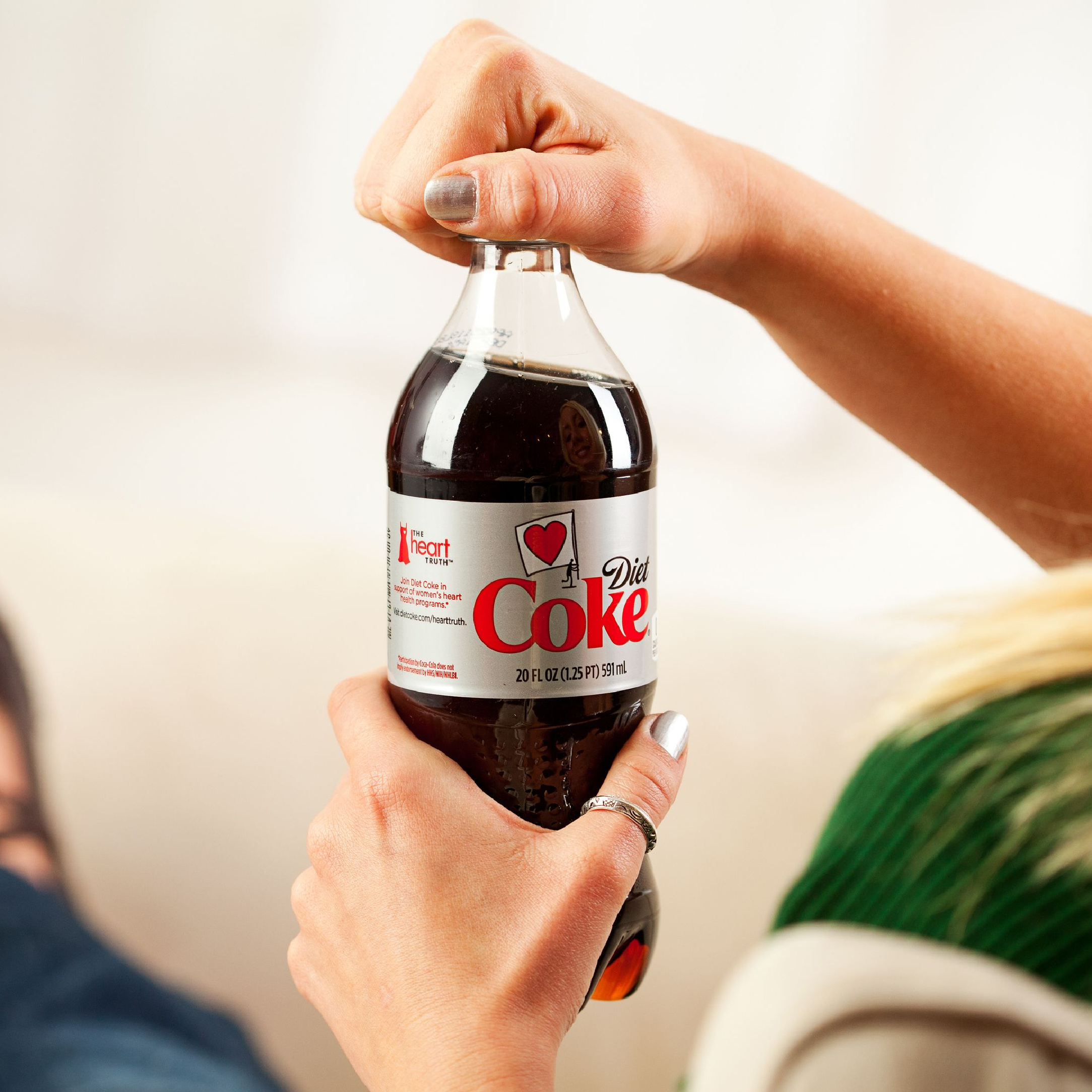Health experts have been warning against the risks of artificial sweeteners for some time now—but new research conducted by a semi-independent committee for the World Health Organization suggests that it may be worse than we think.
As it turns out, regularly consuming artificial sweeteners could be putting you at risk of more than just gut issues and weight gain; WHO has determined that aspartame (found in Diet Coke and other sugar-free treats) is a possible carcinogen. However, it’s important to note that this isn’t necessarily reason for alarm. Read on for more information on the matter.


WHO Declares Aspartame "Possible Carcinogen"
On Thursday, July 14, WHO reported that they determined that Aspartame should be categorized as "possibly carcinogenic to humans," which means that it may cause cancer. This may sound troubling to many people, as Aspartame is one of the most common artificial sweeteners on the globe. It's likely best known for its role in Diet Coke and other sugar-free sodas, but it's also a prominent ingredient in many juices, salad dressings, ice creams, and coffee sweeteners like Equal and NutraSweet.
However, it's important to note that Aspartame's classification as a "possible carcinogen" does not necessarily mean that it is a carcinogen, or that it's directly linked to cancer—which is to say that you're not doomed just because you frequently sip on Diet Coke. The evidence of this is not yet conclusive. Rather, this label means that WHO's International Agency for Research on Cancer found a possible link between aspartame and liver cancer. Ultimately, they simply hope to do more research on the matter. The acceptable daily intake remains at 40 mg/kg body weight.

In fact, the US Food and Drug Administration believes that aspartame is perfectly fine when consumed in moderation and even pushed back against WHO's classification on their website. "The FDA disagrees with IARC’s conclusion that these studies support classifying aspartame as a possible carcinogen to humans," they stated. "FDA scientists reviewed the scientific information included in IARC’s review in 2021 when it was first made available and identified significant shortcomings in the studies on which IARC relied."
The FDA went on to note that "Aspartame is one of the most studied food additives in the human food supply," and "FDA scientists do not have safety concerns when aspartame is used under the approved conditions." Phew!

While these conflicting stances between health organizations can be difficult to navigate, the statement from the FDA is at least a reminder that there's no need for alarm regarding aspartame at the moment. Until more conclusive evidence is reached, you can have some peace of mind knowing that your daily Diet Coke isn't a straight shot to liver cancer.

However, at the very least, WHO's research is a reminder that artificial sweeteners are not necessarily a better choice than sugar when it comes to your overall health. While you may be safe from cancer, there are many other health risks to consider.
At the end of the day, choosing natural sweeteners whenever possible is the best way to ensure the health of your body.
READ MORE:The Real Reason Why McDonald’s Tea Is So Sweet, According To An Employee On TikTok


























